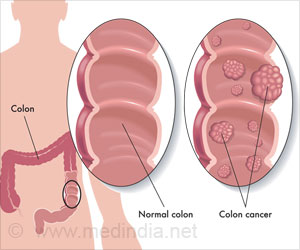
The research was conducted in the lab of Dr. Ravid Straussman of the Weizmann Institute of Science’s Molecular Cell Biology Department, led by his graduate student Leore Geller and conducted in collaboration with Dr. Todd Golub and Dr. Michal Barzily-Rokini of the Broad Institute of the Massachusetts Institute of Technology. Many other collaborators supported different aspects of the study.
The bacteria the group found, explains Straussman, live within the tumors, and even within the tumor cells. "Because the topic is so new, we first used different methods to prove that there really were bacteria inside the tumors. Then we decided to look at the effect that these bacteria might have on chemotherapy."
The researchers isolated bacteria from the tumors of pancreatic cancer patients and tested how they affect the sensitivity of pancreatic cancer cells to gemcitabine, a chemotherapy drug. Indeed, some of those bacteria kept the drug from working.
Further investigation showed that these bacteria metabolize the drug, making it ineffective. The researchers were able to find the bacterial gene responsible for this, a gene called cytidine deaminase (CDD). They demonstrated that CDD comes in two forms - a long and a short form. Only bacteria with the long form of the CDD gene could inactivate gemcitabine. The drug had no apparent effect on the bacteria.
The group examined over 100 human pancreatic tumors to show that these particular bacteria with long CDD do live in the patient’s pancreatic tumors. They also used multiple methods to visualize the bacteria inside human pancreatic tumors. This is crucial, since bacterial contamination is a real issue for lab studies.
Advertisement
While testing the effect of many normal, non-cancerous, human cells on the sensitivity of cancer cells to chemotherapy, they found a specific sample of normal human skin cells that rendered pancreatic cancer cells resistant to gemcitabine.
Advertisement
After revealing how these bacteria degraded the drug, he began to wonder if other bacteria might have a similar mechanism for inactivating the drug, and whether such bacteria might be found inside human tumors.
In the present study, further experiments in mouse models of cancer were done with two groups of bacteria: those containing the long form of the CDD gene and those in which the gene had been knocked out.
Only the group with the CDD gene intact exhibited resistance when the drug was given to the mice. After treatment with antibiotics, this group also responded to the chemotherapy drug.
Many questions remain, and Dr. Ravid Straussman’s and his group are now asking whether bacteria may be found in other cancer types and, if so, what effects they might have on the cancer and its sensitivity to other anti-cancer drugs including a novel family of immune-mediated anti-cancer drugs.
Source-Eurekalert















